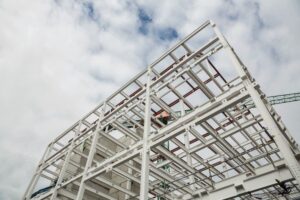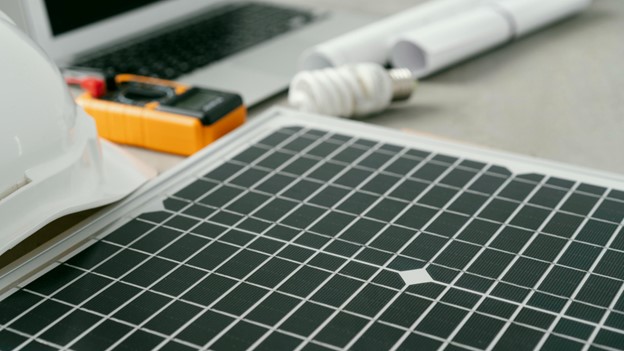
Insulated Concrete Forms (ICFs): Are They Worthy of the Hype?

General Introduction
In the realm of construction, innovation is a constant pursuit. Architects, engineers, and builders and all construction professionals are always on the lookout for construction and building materials and techniques that enhance efficiency, durability, and sustainability. One such innovation that has gained traction in recent years is Insulated Concrete Forms or ICFs. These forms, made of foam boards or blocks, offer a promising alternative to traditional building methods. But are they truly worthy of the hype? Let us dive into the world of ICFs to find out.
Understanding Insulated Concrete Forms
At their core, ICFs are hollow blocks or panels made of expanded polystyrene (EPS), extruded polystyrene (XPS), or other insulating materials. These forms are stacked, reinforced with steel rebar, and then filled with concrete to create solid walls. The resulting structure boasts impressive thermal insulation properties, thanks to the insulating foam layers on both sides of the concrete core.
The Benefits of Insulated Concrete Forms
Energy Efficiency: One of the primary advantages of ICF construction is its exceptional energy efficiency. The insulating properties of the foam significantly reduce heat transfer, leading to lower heating and cooling costs throughout the life of the building. This feature is particularly appealing in regions with extreme climates, where maintaining indoor comfort can be a significant challenge.
Strength and Durability: The combination of concrete and foam in ICF walls results in structures that are incredibly strong and durable. These buildings can withstand extreme weather events, such as hurricanes and earthquakes, far better than traditional wood-framed structures. Additionally, the solid concrete core provides excellent resistance to fire, mold, and pests, enhancing the longevity of the building.
Sound Insulation: Beyond thermal insulation, ICFs also excel in blocking out noise. The dense concrete core, coupled with the insulating foam layers, creates a barrier that effectively reduces external noise infiltration, offering occupants a quieter and more peaceful indoor environment.
Speed of Construction: Despite their seemingly complex construction process, ICFs can actually expedite the building process. The interlocking nature of the forms makes assembly relatively quick and straightforward, reducing labor costs and construction time compared to traditional methods. Additionally, since ICF walls serve as both structure and insulation, there is no need for separate framing and insulation installation, further streamlining the construction process.
Environmental Sustainability: In an era increasingly concerned with sustainability, ICFs offer notable environmental benefits. The use of concrete, a readily available and recyclable material, reduces the reliance on timber, contributing to forest conservation efforts. Moreover, the energy efficiency of ICF buildings translates to lower carbon emissions over their lifespan, making them an eco-friendly choice for environmentally conscious builders and homeowners.
Considerations and Limitations
While the advantages of Insulated Concrete Forms are compelling, it’s essential to acknowledge some considerations and limitations:
Cost: The initial cost of ICF construction can be higher than traditional methods due to the expense of the materials and specialized labor required. However, proponents argue that the long-term savings on energy bills and maintenance costs outweigh the upfront investment.
Moisture Management: Proper moisture management is crucial in ICF construction to prevent issues such as mold growth and structural damage. Builders must employ effective waterproofing techniques and ensure proper drainage systems are in place to mitigate moisture-related concerns.
Design Flexibility: While ICFs offer versatility in design, their use may be limited in certain architectural styles or building applications. Complex architectural features or intricate designs may require additional planning and customization, which could impact construction timelines and costs.
Skill Requirements: Working with ICFs requires specialized knowledge and skills that may not be readily available in all construction markets. Builders and contractors need training and experience to ensure proper installation and maximize the benefits of ICF construction.
Wrapping Up
Insulated Concrete Forms represent a significant advancement in building technology, offering a range of benefits that make them a compelling choice for modern construction projects. From energy efficiency and durability to sound insulation and environmental sustainability, ICFs have much to offer builders, homeowners, and the planet alike. While considerations such as cost and skill requirements warrant attention, the long-term advantages of ICF construction make it a worthy investment for those seeking high-performance, resilient, and environmentally friendly structures. As the construction industry continues to evolve, Insulated Concrete Forms stand out as a promising solution for the buildings of tomorrow.





